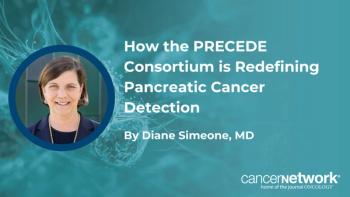
Disease Activity and Treatment of CLL Impairs Antibody Response to mRNA COVID-19 Vaccine
According to new research, patients with chronic lymphocytic leukemia may have suboptimal antibody-mediated response with COVID-19 vaccination.
An investigation found that the antibody-mediated response to the BNT162b2 messenger RNA (mRNA) COVID-19 vaccine was impaired by disease activity and treatment for patients with chronic lymphocytic leukemia (CLL), according to research published in Blood.
The study (NCT04746092) evaluated the efficacy of the BNT162b2 COVID-19 vaccine in patients with CLL compared with healthy controls.
“The antibody-mediated response to SARS-CoV-2 vaccine in patients with CLL is considerably impaired and affected by disease activity and treatment,” wrote the investigators. “Thus, vaccinated patients with CLL should continue to adhere to masking, social distancing, and vaccination of their close contacts should be strongly recommended.”
The research investigated a total of 167 patients with CLL, finding an antibody response rate of 39.5%. A comparison of 52 patients with CLL versus 52 sex- and aged-matched healthy controls found that the response rate was significantly reduced for in the CLL group at 52% versus 100%, respectively (adjusted odds ratio, 0.010; 95% CI, 0.001-0.162; P < .001).
Patients who obtained a clinical remission post-treatment had the highest response rate at 79.2%; treatment-naïve patients and those undergoing treatment at the time of vaccination followed with rates of 55.2% and 16%, respectively.
For the subgroup of patients treated with Bruton tyrosine kinase inhibitors or venetoclax (Venclexta) with or without anti-CD20 antibody, the response rates were low, at 16.0% and 13.6%, respectively.
No responses were observed among patients exposed to anti-CD20 antibodies less than 12 months before vaccination compared with 45.5% of those exposed after 12 months or more (adjusted odds ratio, 37.6; 95% CI, 2.2-651.3; P < .001.
“This study evaluated the serologic response to SARS-CoV-2 vaccination after a two- dose regimen of BNT162b2 mRNA COVID-19 vaccine, given 21 days apart, in patients with CLL,” wrote the investigators. “The anti-SARS-CoV-2 antibody response rate in patients with CLL was considerably low.”
Common adverse effects reported after administration of the second dose included weakness (8.6%), fever (6.6%), chills (6.0%), headache (5.4%), and muscle pain (4.8%).
The cohort of patients investigated in this research received 2 doses of the vaccine, 21 days apart. After the second dose, the Elecsys Anti–SARS-CoV-2S assay was used to measure antibody titers.
Longer follow-up data are needed to determine how long patients with CLL who showed an immune response to vaccination will maintain those levels.
“Serological tests after the second injection of the COVID-19 vaccine can provide valuable information to the individual patient and perhaps, may be integrated in future clinical decisions,” wrote the investigators. “In the future, the efficacy of a booster doses should be studied in patients who failed to achieve an optimal response, especially in patients who completed treatment attaining a deep and sustained response.”
Reference
Herishanu Y, Avivi I, Aharon A, et al. Efficacy of the BNT162b2 mRNA COVID-19 Vaccine in Patients with Chronic Lymphocytic Leukemia. Blood. April 16, 2021. doi:10.1182/blood.2021011568
Newsletter
Stay up to date on recent advances in the multidisciplinary approach to cancer.










































